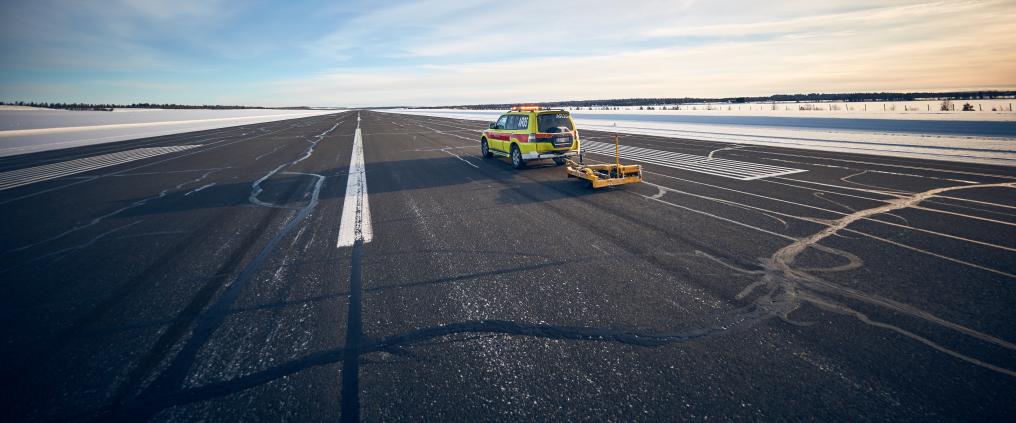Finavia is a pioneer in sustainable development in the aviation industry and has worked long-term in order to reduce its carbon emissions.
"Net zero carbon emissions is an ambitious climate target, and we are proud to have achieved it at four of our airports. By switching to exclusively using renewable energy, we have reduced our carbon emissions by 98% in ten years at Ivalo, Kittilä, Kuusamo and Rovaniemi airports. Our operations at all of our 20 airports have been carbon neutral since 2019," says Mikko Viinikainen, Finavia’s Senior Manager, Sustainability & Environment.
Finavia's goal is for all of its airports to achieve net zero emissions by the end of 2025.
Net zero emissions at Ivalo, Kittilä, Kuusamo and Rovaniemi Airports have been certified in the international Airport Carbon Accreditation (ACA) programme, which Finavia has been part of since 2011.
"In the programme, airports are accredited at five different levels, the highest of which is net zero. The prerequisite is that carbon emissions are reduced by at least 90 percent, residual emissions are neutralised and that the emissions data and operations are verified by an external party."
In addition to Finavia’s four airports, ten airports worldwide have achieved net zero emissions. These include Amsterdam Schiphol and Rotterdam airports in the Netherlands and Malmö and Göteborg Landvetter airports in Sweden.
The carbon emissions of airports mainly arise from the lighting of terminals and other consumption of electricity, heating, cooling and the energy consumption of vehicles. Finavia has been using zero-emission electricity since 2018, and airport vehicles are fuelled with diesel made from waste and residues.
"In 2023, we switched to renewable motor fuel oil for work machines and emergency power generators at the airports of Kittilä, Ivalo, Kuusamo and Rovaniemi. We also switched to renewable energy, such as district heating based on biofuels, for terminal heating."
At the net zero level, only a few percent of carbon emissions remain, and in order to neutralise them, Finavia participates in projects that meet the quality requirements of the ACA programme, where carbon dioxide is captured from the atmosphere by the amount of residual emissions.
"The long-term goal of our climate programme is for our airports to be carbon negative. By setting high targets, we, as an airport company, want to set an example for the entire aviation industry. We expect emissions from air traffic to decrease gradually as sustainable solutions develop," Viinikainen says.
Sustainable travel certificate for four airports
The airports of Ivalo, Kittilä, Kuusamo and Rovaniemi have also been awarded the Sustainable Travel Finland certificate by Visit Finland.
"Promoting sustainable travel is a common goal for the entire Lapland region’s tourism operators. The sustainable tourism certificates awarded to four of our airports in the north are proof of the work we are actively doing to minimise our environmental impact," says Jonna Pietilä, Finavia's Vice President, Lapland Airports.
Visit Finland has developed the Sustainable Travel Finland programme and the Sustainable Travel Finland label achieved through the programme for tourism companies and regions.
The recognition was granted to Kittilä Airport in 2022, Ivalo and Rovaniemi airports in 2023 and most recently to Kuusamo Airport in April 2024.
"Net-zero airports and sustainable travel certificates communicate to both travellers and our stakeholders that we want to do everything we can to promote sustainable travel. It is at the heart of Finavia’s goals and values," Pietilä says.
Read more
Finavia aims to reduce its carbon emissions to nearly zero
Ivalo Airport awarded the Sustainable Travel Finland label




